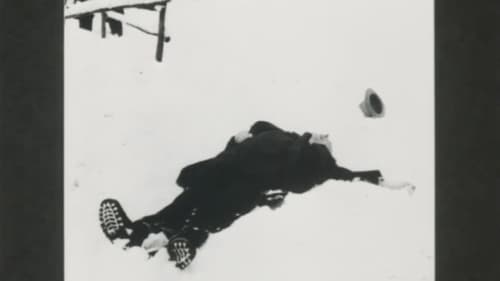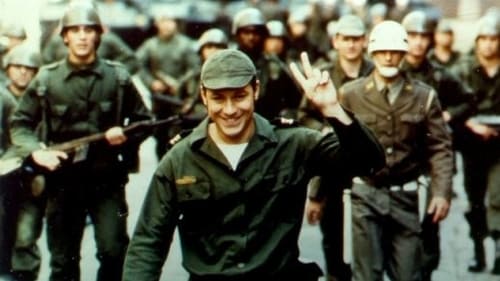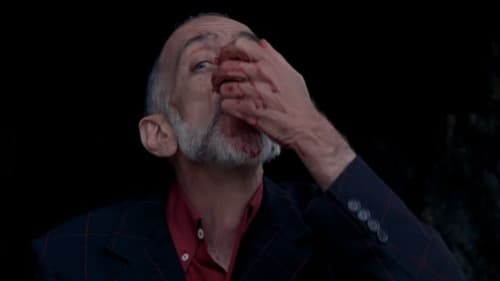
Bernardo
The tragic story of the many lives of Father Dinis, his dark origins and his pious works, and the different fates of all those who, trapped in a sinister web of love, hate and crime, cross paths with him through years of adventure and misfortune in the convulsed Europe of the late 18th and early 19th centuries.

Joaquim
The story of a man who sees his life change radically upon confronting his progressive loss of memory. As his neurological condition advances, it affects not only his own life but the lives of all those who surround him.

Salvador
In a remote island where mourning was settled, a man decreed that there will never be sex or children anymore... The island gets desolate and he decided to send his daughter, Adriana, to the mainland to form a family by natural methods.

Francisco
Francisco, behave! I Know it's your birthday, you are thirty now, it's carnival, you've dressed as a cowboy for the school party and you are surrounded by kids you hate. But that's no reason to be so annoying... Francisco, repeat after me: "Up to your 30s you have the face God has given you. After that, you get the face you deserve".

blind officer
During the war of in-dependency Evita moves from Lisbon to Mozambique to marry Luís. She slowly discovers how different and disturbing life is in a country of war and when her husband is send on a military mission she starts to fight loneliness. Over time she finds out more about her husband and Mozambique than she would have imagined in her peaceful European home. Racism, violence, injustice and fatalism make life unbearable...

Adriano
One bad thing never comes alone, says the people. The village Estrela is threatened by the waters of the new Alqueva dam. It will become an "island". But, as one bad thing never comes alone, the daily lives of the inhabitants of this small mountain village are changed by the death of Adriano. "In order to create, I destroyed myself; I have so much externalized within myself that within me I exist only outwardly. I am the living scene where various actors perform various plays." (from Livro do Desassossego by Fernando Pessoa), as Adriano liked to quote Adriano. He committed suicide on the day of the village feast, hanging himself in the main square. For Adriano, the main square of the village has long been the center of the world. Adriano felt surrounded, depressed, unable to escape his destiny. "No one can stop a man who travels with suicide on his lapel" Adriano repeated to Lisete, always to the point of exhaustion.

Pedro
Nourished by pain, it corrupts the intimacy of a couple that has lost their child. The mother, Gracinda Nave, refuses to speak, transforming their home in a place of mourning where memories shatter lovers, ruining the relation with her husband, José Airosa. The original soundtrack is, in itself, a metaphor of how one can escape from grief, in a way the final duet symbolizes everything unsaid between them, through out the film. The director, Margarida Leitão, employs the symbology of a balloon, a puzzle and some drawings to create little flashes of a past filled with colour. A chromatic journey across the instants of another life when we could hear a child's laughter and the house was filled with joy. But now, the house is an empty space where the two lovers drift apart.

Wise Guy 2
A boy in Lisbon, in this Lisbon in permanent renovation.

Monteiro moved far away from the visual opulence defined by his earlier films with his inspired adaptation of radical Swiss writer Robert Walser’s anti-fairy tale. Carefully restricting the image track, Monteiro maintains an almost totally black screen in order to focus instead on the voices of Snow White, the Prince, the Queen and the Hunter, engaged in an extended debate about love, free will and the events leading up to the fateful attempt on the maiden’s life. Despite its visual austerity, Snow White is haunted by the arresting images with which it begins – infamous black-and-white photographs of Walser lying dead in the snow after his heart attack outside a Swiss asylum at the age of seventy-eight, a strange realization of the “death of the author” so central to postmodern literary criticism.

Paulo Ruivo
Story of the 1974 coup that overthrew the right-wing Portuguese dictatorship--which continued the fascist policies of long-time dictator Antonio Salazar--and of two young army captains who were involved in it.

Omar Raschid
After receiving a visit from a messenger of God, João de Deus wins his buddy's girlfriend through a roll of the dice.

This short film is based upon a book of tales "Exemplary Crimes" by Max Aub who, in his turn, was inspired by real testimonies that describe crimes straightforwardly. The Testimonies are individual confessions by different persons that have nothing in common but the fact that all committed murder.

Rodrigues
The film presents us with a reflection on the Spanish Civil War in the Portuguese society, At a time when Salazar ruled.










